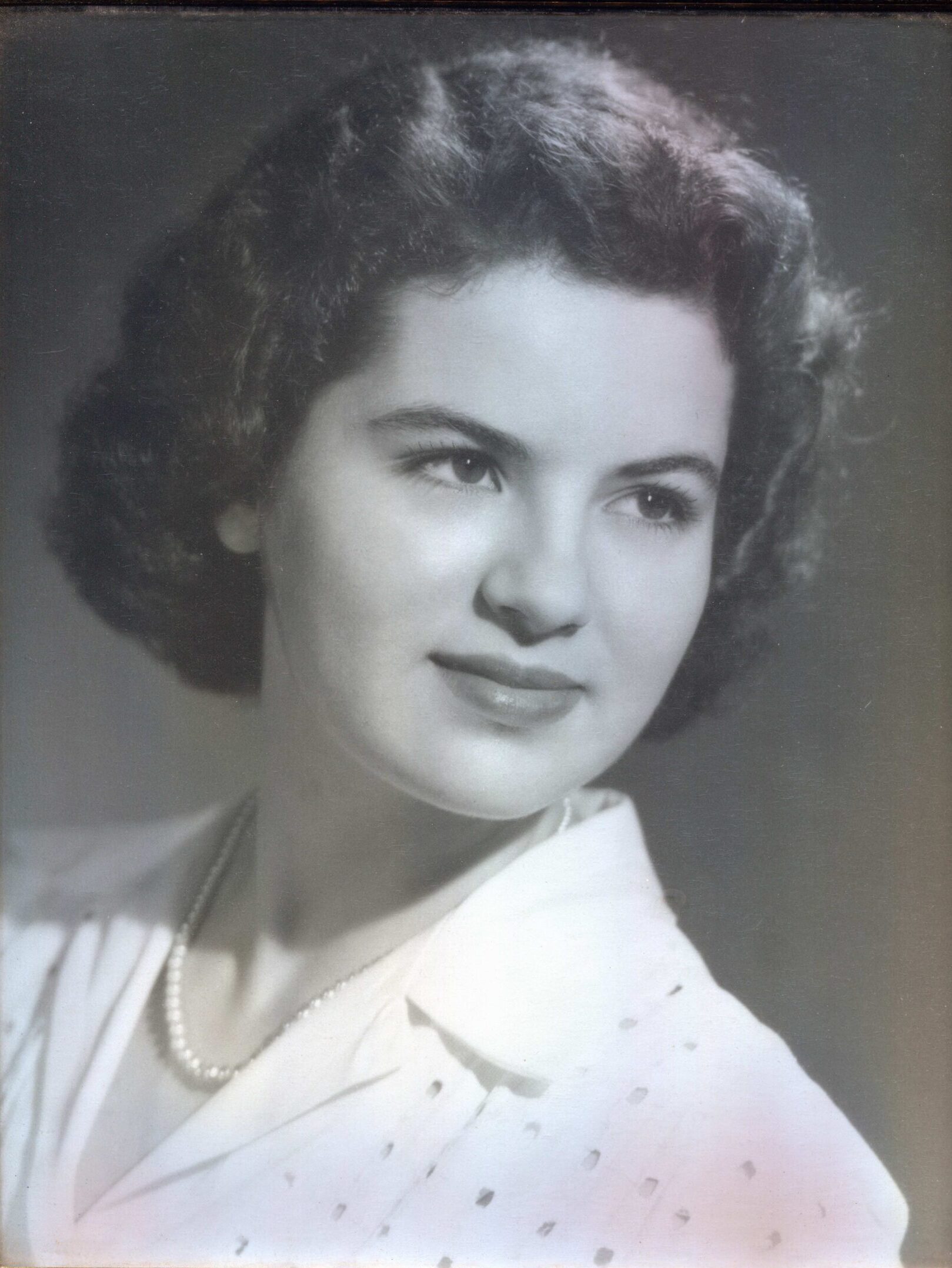
Yetta Goldstein Ziolkowski, beloved mother, grandmother, and great-grandmother, passed away on the morning of January 10 in Kirkland Village, Bethlehem, Pennsylvania. Her husband of almost seventy years, Theodore Ziolkowski, born 1932, had died there on December 5, 2020. In their life together they had previously resided in Chapel Hill, North Carolina; Innsbruck, Austria; New Haven, Connecticut; Cologne, Germany; Hastings, New York; and, for the longest stretch, Princeton, New Jersey, from 1964 to 2019. For fifteen years, toward the end of their lives, they made extended annual visits to Berlin, Germany.
Yetta Ziolkowski was born on August 5, 1929, in Cedartown, Georgia. She was the oldest of four children of Margaret Goldstein, née Embry, originally from Anniston, Alabama, and Samuel Jacob Goldstein, né Olewnik, who had immigrated to the United States in 1903 from Ciechanów, in the Russian Partition of what is now Poland. She took great pride in being the daughter and sister of veterans: her father had served in France in World War I as a volunteer in the Canadian Expeditionary Force, and her brother, Jimmy Alden Goldstein, was a U.S. soldier stationed in South Korea in the late 1950s.
A conventional resume would record that Yetta Ziolkowski was high-school valedictorian in Lincoln, Alabama, an undergraduate at what is now the University of Montevallo, Alabama, and a graduate student who earned an M.A. in comparative literature at the University of North Carolina in Chapel Hill. Later she taught Latin at a girls’ school in New Haven, Connecticut. In midlife—the long Princeton phase—she made many meaningful contributions as a volunteer at Princeton Hospital, docent at the University Art Museum, and coordinator of host families for Saudi Arabian engineering students studying English on the Princeton campus in the summers of 1976 and 1977. She worked alongside her husband during his thirteen years of service as Dean of the Graduate School.
Yetta also did numerous co-translations with her husband, notably of Herman Meyer’s The Poetics of Quotation in the European Novel, and took photographs to accompany her husband’s works. In her sixties and seventies, she increased her community work, especially with the local welfare board, and applied to her own garden her sophisticated landscape and horticultural knowledge, gained in part from promoting the restoration of the garden designed by Beatrix Farrand at the Graduate School.
Though accurate, the accounting given fails to capture much about Yetta Ziolkowski that was most extraordinary. To the end, she retained an enduring imprint from her upbringing in rural Alabama during the Great Depression and World War II. Her father and mother brought together lasting roots, his in the Jewish communities in Ciechanów and Mława in what is now north-central Poland, and hers in and around a place called Embry’s Bend, alongside the Coosa River, outside the small town of Lincoln, Alabama.
To the last, she also commanded a formidable historical knowledge, an awe-inspiring memory of people—their faces, names, families, stories, and more—and places, and a deep and broad erudition in literature, art, history, and religion. To these she added perspectives gained from travels with her husband, not only across North America, but also throughout Europe, as well as to South Korea and Japan.
Yetta retained close ties both with those she had known from childhood and with those she had befriended in adulthood. Her husband may have published numerous books of literary and cultural history, but he and everyone else in the family recognized without hesitation that Yetta had read seemingly everything. That reading was not confined to English, since she shared with her spouse a profound commitment to German and Latin. Family members also knew how her nature would lead her from casual encounters into extended conversations that would elicit exceptional recollections and connections. Long before AI, she could transcend almost instantaneously the six degrees of separation.
From the very start, the relationship between Yetta and Theodore Ziolkowski—a fellow Alabamian, from Montevallo—was one of unbounded and unfailing love. Their marriage on March 26, 1951, proved magically successful, uniting two people whose fathers immigrated to the United States from utterly different backgrounds in eastern Europe. As a matriarch and person, Yetta was formidable in shaping and guiding those around her. She conveyed her strong insights, convictions, visions, and ambitions to everyone, not the least her three children and seven grandchildren. Her descendants will hear for generations to come about her mind, character, and, above all, love. She will never be forgotten.
She is survived by her younger sister Sarah Avisar Lichtman, of Bnei Dror, Israel; younger brother Jimmy Alden Goldstein, of Lincoln, Alabama; and youngest sister Barbara Bonfield, of Birmingham, Alabama; and daughter Margaret Ziolkowski and her husband Robert Thurston, of Oxford, Ohio; elder son Jan and his wife Elizabeth Ziolkowski, of Newton, Massachusetts; and younger son Eric Ziolkowski and his wife Lee Upton, of Easton, Pennsylvania. Also grieving her loss are a grandson and six granddaughters, along with two great-granddaughters and three great-grandsons.
In lieu of flowers, those who wish to memorialize Yetta Ziolkowski may make a donation in her name to either the World Jewish Congress (WJC: https://support.worldjewishcongress.org/) or the Anti-Defamation League (ADL: https://www.adl.org/).
